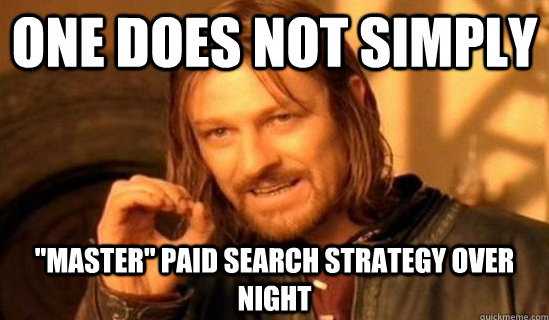Why is buying links bad?
Why are paid links for passing PageRank bad?
Google’s guidelines on many issues is often described as being too vague about what is and is not a bad practice for SEO. On the issue of paying a site $xx amount of dollars to link to your site, Google has obviously – been – very – clear about their stance on paid links.
So, if you’re in a position where you’re considering paying for a link, I think the first thing you have to ask yourself is this:
Question: Can my business survive if I stop receiving traffic from organic results?
If your answer was anything but a resounding yes, then you should stop here. If you rely on Google organic traffic to survive it isn’t worth the risk to your business.
Having established the above guideline before you even remotely consider paid links, we shall proceed at further evaluating the what why and when of paid links. It’s a topic that many SEOs and businesses seem to be confused with and it’s one that is so important to understand thoroughly.
So why does Google consider paid links bad?
It’s important to understand that there is a difference between paid advertising (good and perfectly acceptable under Google’s Guidelines) and paid linking.
Paid advertising is seen all over the web, it’s a staple of literally millions of websites and primary source of revenue for legitimate businesses all over the world. So what makes paid advertisements different? The links created in advertising don’t pass PageRank. There’s obviously a technical explanation to why PageRank isn’t passed on most advertisements like Adsense or Chitika but we won’t dive into that here.
You can thank your lucky stars that Google is against paid links. Their efforts at enforcing this rule are why many business including your own are able to remain competitive on the web. It’s simple, if paid links were allowed, those sites with huge marketing budgets would be able to dedicate large amounts of money creating 1,000s of links. In a competitive space, it would monopolize search verticals with the big businesses constantly gaining strength with the little guys falling behind more and more each day.
So, paid links are bad not because Google says so but because it’s better for the web as a whole. I get it, but how else am I going to get links if I don’t pay for them?
Anyone who as worked to increase organic rankings for a site at one time or another has had to consider how they are going to get links to their site. There’s always debate over the degree of importance links are to rankings but you can generally think of links like the engine of a race car If you’re racing in a field of V8’s and you have a 4 cylinder you’re not going to be competitive. You don’t always have to have the most powerful engine in the field but you must enough to be competitive.
So how do I get links?
How you operate a successful link building campaign is going to depend on your market and what is or is not working. A bit of trial and error and/or back-link analysis of your competitors can help you in some cases. The truth is that there are literally hundreds and hundreds of terrific resources out there that can help give you ideas for link building that don’t violate Google’s webmaster guidelines.
I’ve included a few ideas below, and I even wanted to provide an example since it’s always easier to learn from the success someone else has experienced with a specific tactic.
- Use events your participating in or hosting to create terrific backlinks – https://www.searchenginejournal.com/effective-link-building-using-event-blogging/34104/
- Use market surveys to get terrific content and pre-built interest from participants –
http://searchenginewatch.com/article/2219441/6-Reasons-You-Should-Use-Market-Surveys-in-Link-Building-Campaigns - Recycle other people’s content –
http://www.imrcorp.com/services-inbound-marketing/services-traffic/create-inbound-content/5-ways-to-re-use-content-created-by-others/ - Do something unexpected for a influencer in your space –
http://www.seerinteractive.com/case-studies/linkbuilding-case-study/to-the-1st-power-external-links - Be controversial, wrong or right (just don’t be a jerk in the process) –
http://grasshopper.com/blog/2010/01/how-to-create-a-tivo-proof-ad/
Most of all, link building is about creating something, then telling people about it. If you are going to create ego-bait, then tell people about it. Call them, email them, find them on social networks. Once you get the word out, your link efforts can grow. If you post something then expect people to find it and care you’re going to be disappointed.
Chase
Recent Posts
Recent Comments
- Shannon Thammasiene on How to Create a Successful Blog
- Sarah on How to Create a Successful Blog
- How to Create a Successful Blog on 5 Free Keyword Research Tools that will Rock your Socks
- Olivier Hamphrey on This Week In Social Media
- Richard Dickerson on Use Email to Sell without Selling

